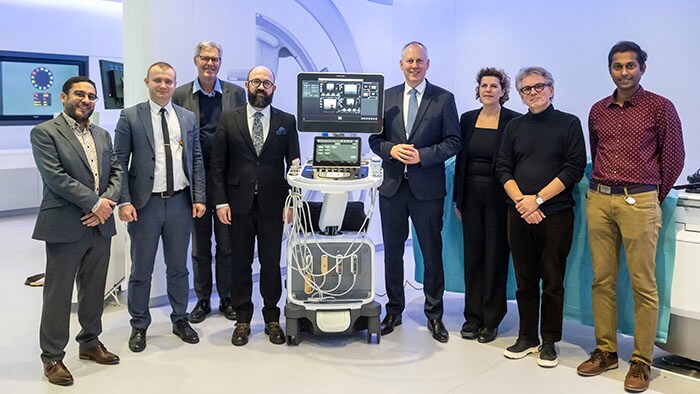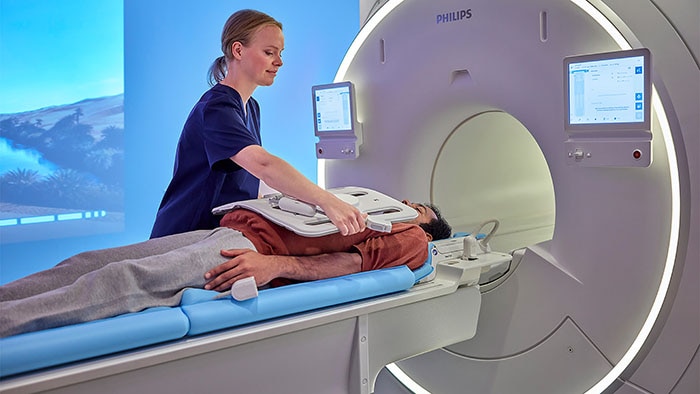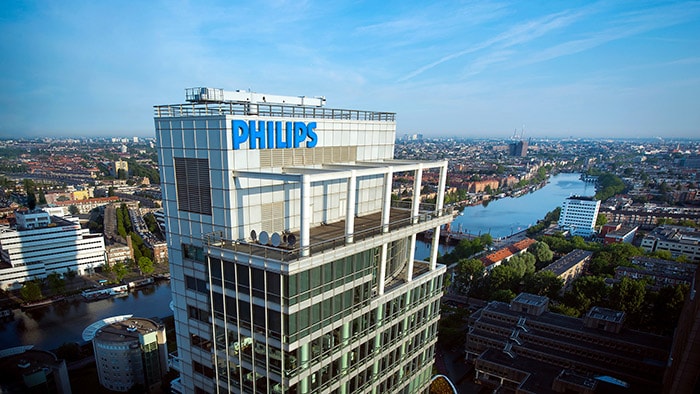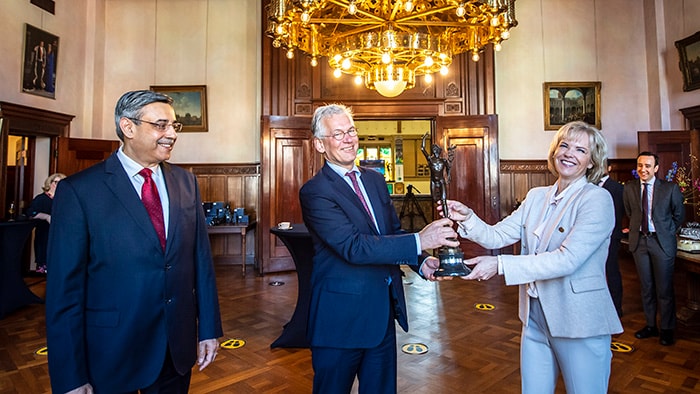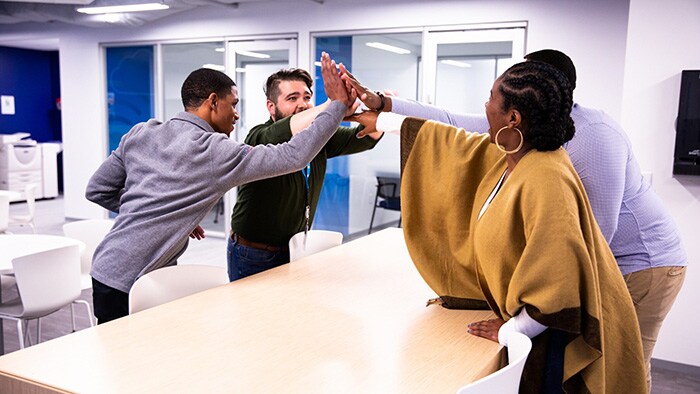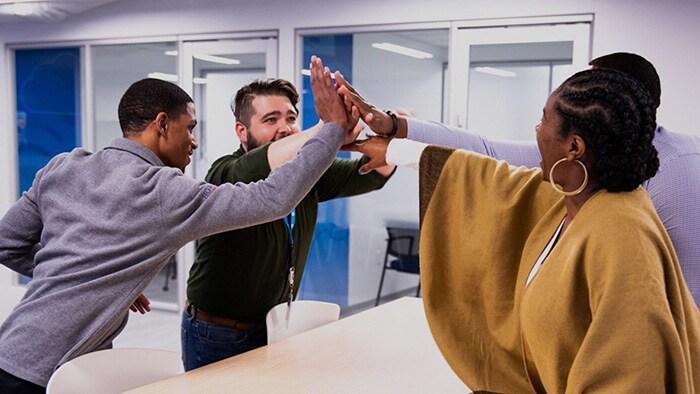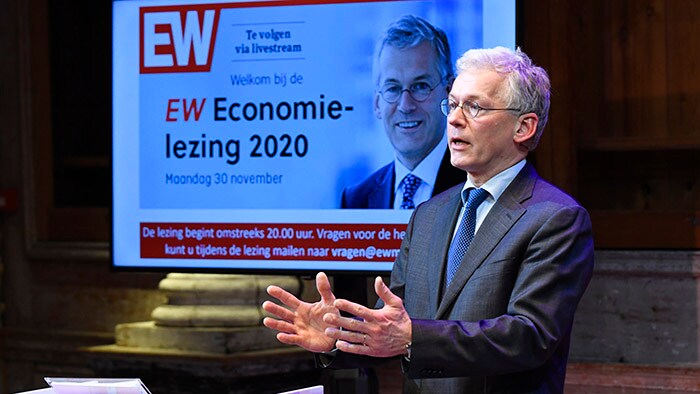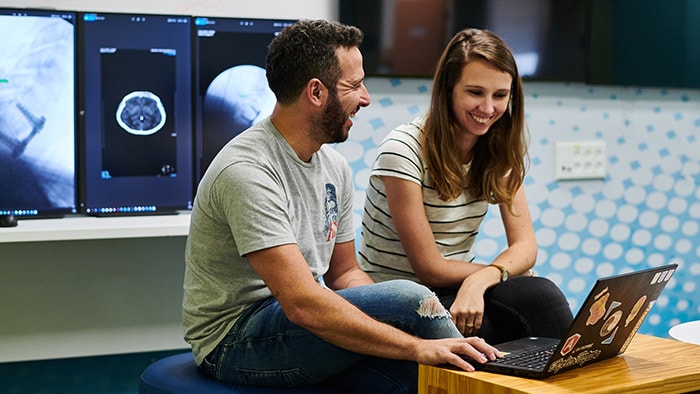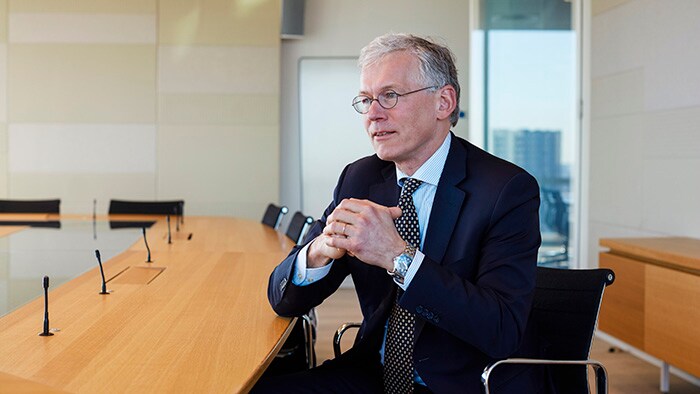On November 30, 2020, Frans van Houten, CEO of Royal Philips, gave the annual Elsevier Weekblad (EW) Economics Lecture in the historic Felix Meritis building in Amsterdam. In his lecture, entitled Together we’ll innovate the Netherlands, Van Houten explored the competitive strength of the Netherlands and detailed his vision for securing a prosperous future for the country. According to Van Houten, the road to that goal revolves around targeted investment in promising growth areas that can flourish in five or six defined innovation ecosystems, supported by an efficiently functioning Netherlands and a united Europe. Because of the corona crisis, Van Houten addressed most of his audience online - and with that in mind he opened his lecture by saying, “We live in far from normal times. But the crisis has also taught us something beautiful: that if necessary, we in the Netherlands can change quickly.” It was the introduction to a lecture in which his plea to the audience was to continuously embrace change, or to use his own metaphor ‘to seek out the wind and sail new seas’.
The Netherlands versus global forces
Why do we need to embrace change? Because according to Van Houten, the Netherlands, with its export dependent economy, is vulnerable to four different global forces – technological, geopolitical, ecological and social – all of which affect the sustainability of the country’s traditional earnings model. The Internet and artificial intelligence are turning entire industries upside down and quickly forcing companies to either adapt or die. America and China are defending their own positions, and Europe is under threat. Climate change continues apace, and in all Western societies material and social divisions are not being narrowed.
Measured on an economic yardstick
This is not good news for an earnings model based on 'The Netherlands as a distribution country' according to Van Houten, who therefore believes the country should seek out the new earning models of the future in good time. To illustrate the need, he assessed the Netherlands against the economic yardstick of World Economic Forum world rankings. The Netherlands is currently in fourth place on the WEF's Global Competitiveness Index, but he predicts that, with its existing policies, it will soon lose ground. On the indicators of the future – ICT adoption and education – the Netherlands scores below par.
Deploying ecosystems in growth areas
Van Houten has a solution: innovate together based on our strengths. Winning is choosing where to invest and investing. He believes that the Netherlands should make a targeted choice to invest in five or six promising growth areas that could develop faster through the establishment of innovation ecosystems. His company, Philips, is part of the high-tech ecosystem that already exists in the Netherlands’ Brainport Eindhoven. But there are other ecosystems in the Netherlands that can leverage technology and artificial intelligence to put the Netherlands on the map in their respective sectors and do it sustainably in terms of embracing the circular economy, the clean energy transition, and improvements in people’s health. By way of example, he quoted the strength of Wageningen University and Delft University in horticultural and agricultural technology, and the potential for the ‘medical delta’ of Leiden, Delft and Rotterdam to host innovative new cloud-based European health services.
An effective Netherlands in a united Europe
Analyzing the Netherlands according to the WEF model, Van Houten concludes that the country can climb up the rankings by making targeted investments in these growth areas. In addition, it can further promote that growth by focusing on high-quality education and lifelong learning; widely accessible healthcare to keep its citizens fitter for longer; and the best digital and physical infrastructure in Europe. However, one essential condition lies beyond the Netherlands alone – a Europe with harmonized rules and a single European market that enables European companies to compete with American and Chinese companies based on equal opportunities.
The most sustainable economic engine in the world
Van Houten's dream is a Netherlands that becomes the most sustainable economic engine in the world and the foremost innovation region of Europe, where its citizens can live in prosperity according to European standards of which the Netherlands is proud - a dream from which no one is excluded.
An enthusiastic appeal to all parties – join in!
Van Houten concluded by saying that the Netherlands must take action. The plan may be beautiful, but now all parties must implement it. And for that they need to be prepared to proactively change, not simply because they are forced to. Based on the ‘Namens Nederland’ (‘On behalf of the Netherlands’) survey, one of the early initiatives of the NL2025 movement that Van Houten helps to spearhead, he concluded that the will is there. He therefore ended his optimistic EW Economics Lecture 2020 with an enthusiastic appeal to all parties – the government, entrepreneurs, investors, thinkers and doers – to embrace the motto ‘Together we will succeed’ in the firm belief that doing so would lead to a prosperous future for the Netherlands. The full text of the lecture, is available in English and Dutch.
Share on social media
Topics
Contact

Steve Klink
Philips Global Press Office Tel: +31 6 10888824
You are about to visit a Philips global content page
Continue

